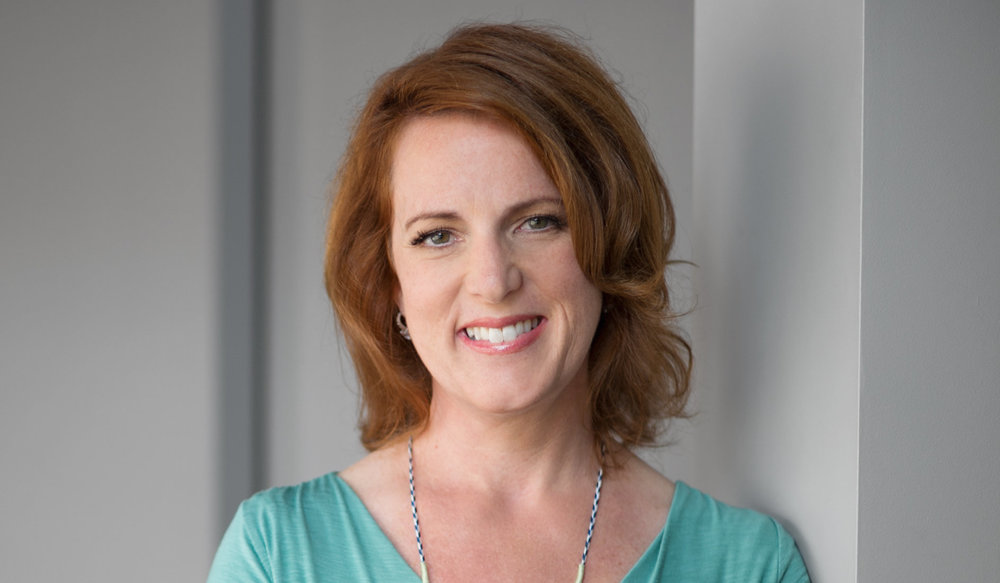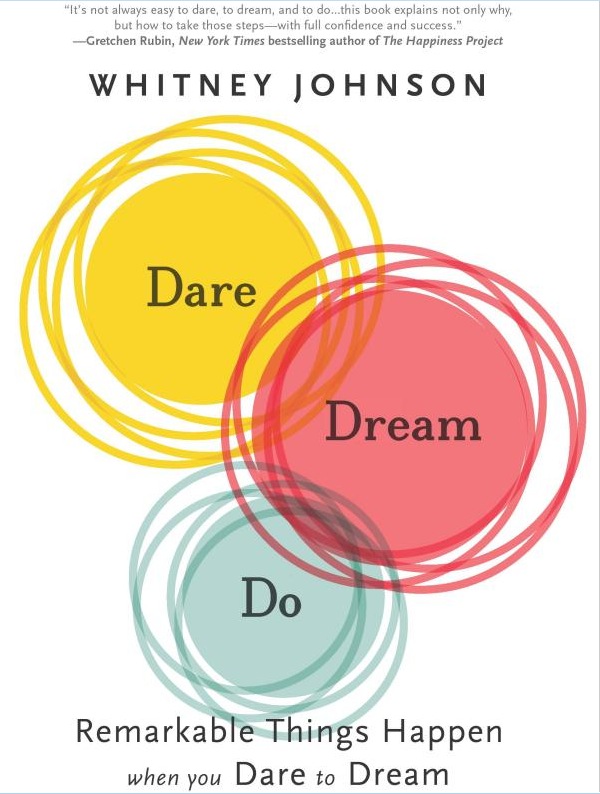Ask the Expert: Whitney Johnson
 The “Ask the Expert” interview series connects you with dynamic thought leaders. This year we’ve spoken with Cameron Gott about enlisting help, Dr. Thomas Armstrong about motivation, Harold Taylor about time management, Erin Rooney Doland about clutter, Francine Jay about letting go, Todd Henry about next steps, Dr. Debbie Grove about change, and Joshua Becker about fresh starts. For September, I’m thrilled to have with us innovation expert, Whitney Johnson to share her insights about success.
The “Ask the Expert” interview series connects you with dynamic thought leaders. This year we’ve spoken with Cameron Gott about enlisting help, Dr. Thomas Armstrong about motivation, Harold Taylor about time management, Erin Rooney Doland about clutter, Francine Jay about letting go, Todd Henry about next steps, Dr. Debbie Grove about change, and Joshua Becker about fresh starts. For September, I’m thrilled to have with us innovation expert, Whitney Johnson to share her insights about success.
One of the perks of being active on social media is there’s the opportunity to meet interesting people that you might not have met otherwise. One of my Twitter buddies introduced me to Whitney through her book, Dare, Dream, Do. I read it, loved it, and couldn’t wait to interview her for this series. Before we begin the interview, here is more about her.
 Whitney Johnson is a leading thinker on driving innovation via personal disruption, co-founder of Clay Christensen’s investment firm, and was an award winning Wall Street equity analyst and stock picker. She is a regular contributor for Harvard Business Review and the author of Dare, Dream, Do: Remarkable Things Happen When you Dare to Dream. You can connect with Whitney on Twitter, Facebook, LinkedIn, Pinterest, Google+, blog or website.
Whitney Johnson is a leading thinker on driving innovation via personal disruption, co-founder of Clay Christensen’s investment firm, and was an award winning Wall Street equity analyst and stock picker. She is a regular contributor for Harvard Business Review and the author of Dare, Dream, Do: Remarkable Things Happen When you Dare to Dream. You can connect with Whitney on Twitter, Facebook, LinkedIn, Pinterest, Google+, blog or website.
Linda Samuels: On your website you wrote, “I see the world as a series of opportunities to invest– in stocks, in ideas, and in people. I believe my true mission is to help people ‘disrupt themselves’ and build a remarkable and surprising future.” What are some essential success ingredients?
Whitney Johnson: Ah, success. My definition of success has changed over the years. When I was younger, it was all about the outcomes. Would I make the tennis team? Get into the right college? Get a prestigious job? Which I think is normal. From a developmental perspective, we need concrete goals. But, I’m discovering that a lifetime of success involves showing up. Not in a “here I am, therefore I deserve” kind of way. But in deciding that I want or care about something enough to do the work. And to then NOT sabotage myself. So that if it doesn’t happen, I have no excuses. Whether it’s the dream of giving a great speech, launching a successful investment fund, or being a good parent. The surprising truth here is that even when I fail, there is a thrill and deep satisfaction in knowing I have given it my all.
Linda: What are some obstacles we might experience when pursuing success?
Whitney: Entitlement -- The opposite of showing up. The thing about entitlement is it comes in lots of clever guises. Many of us reflexively think “Kids. Now they are entitled.” But all of us struggle with entitlement. Think about when a colleague gets a well-deserved opportunity. You are genuinely happy for them. But there is a piece of you that snivels, “Why didn’t I get that opportunity? Why do I even bother trying?” I know I’ve felt this way – just last week, if you’re wondering. Failure to acknowledge and see abundance in another person’s success is a form of entitlement.
Linda: In your book, Dare, Dream, Do, you emphasize the importance of dreaming. What is the connection between dreaming and success?
Whitney: When we dream, we are hungering for a better life. And when we dream, we become problem solvers, letting nothing stand in our way. Dreaming is at the heart of disruption.
Linda: What are traits successful people have in common?
Whitney: There are (3) traits I think are especially important. Showing up, as I’ve mentioned. Also, the ability to persuade, meaning you can help people see your vision for a remarkable future. And a growth mindset, the belief that our abilities are not innate and fixed, but that with practice and perseverance we can improve.
Linda: What has been your biggest personal success challenge?
Whitney: Being a mother. Our children are 18 and 14 respectively. Being a mother requires me to ‘show up’ – no performance or posturing. It is messy, and scary, and I frequently feel downright inept. But with each passing year, I am ‘showing up’ more, and my relationship with my children and husband improves – so according to my metrics, I would say I am successful.
Linda: What is your most surprising discovery about success?
Whitney: It is elusive (the brass ring doesn’t really exist) and potentially ever present; every day I get to decide if I will be fully in my life, to show up.
Thank you, Whitney for being here with us. I love the way you talk about success with such clarity and humanity. Your idea of “showing up” resonated with me, especially in the context of when I was preparing a few weeks ago to attend my first conference as ICD President. I realized that while I could stress and prepare about getting everything “right,” what was most important was that I “show up,” be present, and give my full attention to people individually and as a group.
Join Whitney and me as we continue the conversation. What are your success discoveries? What resonates with you?
